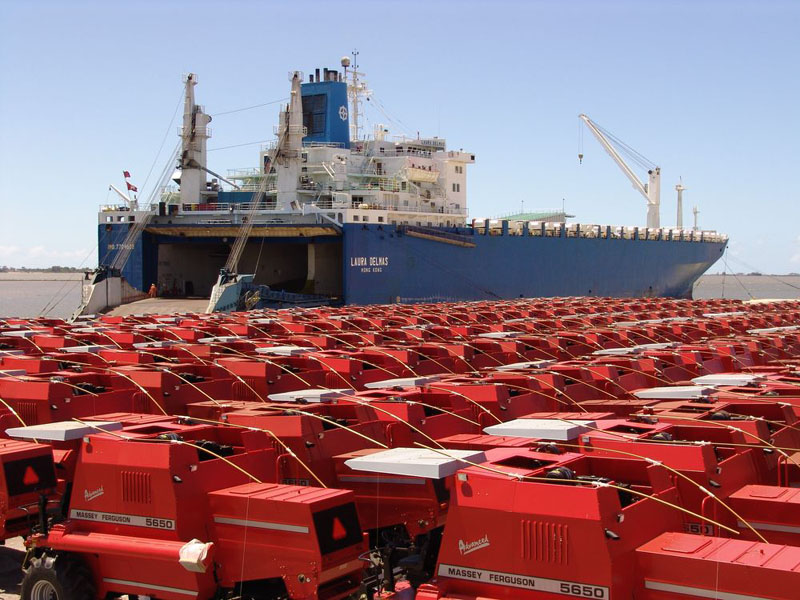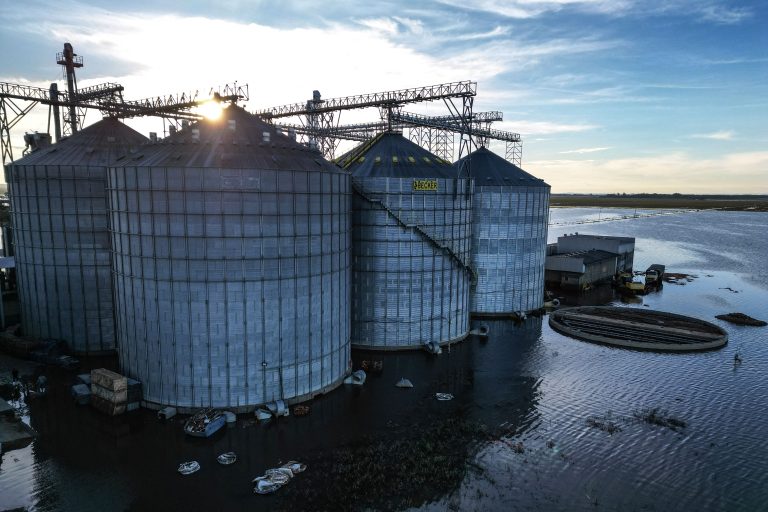São Paulo – The floods that hit Brazil’s Rio Grande do Sul state in May will impact the results of exports in the coming months. Estimates from the Rio Grande do Sul State Industries Federation (Fiergs) indicate a USD 917.3 million decline in exports compared to 2023, whereas it had estimated an 2024 increase in exports before the climate tragedy. Projections have been remade following the damage to the state’s industries.
According to data from Brazil’s Ministry of Development, Industry, Trade and Services compiled by the Economic Studies Unit of Fiergs, industry exports from the Rio Grande do Sul state reached USD 1.2 billion, down 19.3% from the previous year.

This data considers the extractive and converting industry. Extractive industry exported USD 2.6 million, up 15.3% from May 2023, but its gains were offset by the converting industry, whose exports fell by 19.3% to USD 1.2 billion.
Fiergs chief economist Giovani Baggio said the Rio Grande do Sul state’s industry was already showing signs of a downturn. As a result, to estimate the losses, it was necessary to separate the recent months’ trend from the climate tragedy.
“Our original forecast for the whole year’s exports of the converting industry in 2024 was at USD 14.9 billion before the flood. As the latest information came, we updated our estimates to USD 14 billion, which means that the floods are estimated to prevent Rio Grande do Sul from exporting USD 917.3 million worth of industrial goods,” said Baggio.
Impact on several sectors beyond industry
Baggio said industrial losses were “widespread”, as 18 out of the 23 exporting industries sold less compared to the same period last year. The food industry, which is the top exporter, sold USD 373.1 million in May, down 36.5% from May 2023. Most food production plants in the state were in municipalities hit by the floods: Porto Alegre, Pelotas, Caxias do Sul, Passo Fundo, Canoas, Gravataí, Lajeado, and Santa Maria.
The second most affected was the machinery and equipment industry, with exports at USD 56.3 million, down 49% from May 2023. Motor vehicles was the third most impacted, reaching USD 64.3 million in May, down 41.7% from the same month in 2023.
Prospects are good, moving forward. There is obviously a whole rebuilding going on
Luís Rua, market director at ABPA
Baggio said the state’s leading port, Rio Grande, and ports of neighboring Santa Catarina that cater to the state are operating within normal ranges, but the infrastructure that takes products to these ports has been damaged, thus increasing the transportation time of goods to ships and raising freight costs.
Fiergs’ chief-economist also pointed out the share of Arab countries in the state’s exports: “Whole year’s exports from Rio Grande do Sul fetched USD 22.3 million in 2023. Of these, USD 1.6 billion (7%) worth of goods were bound to the Middle East. Of the USD 16.9 billion exported by the state’s transformation industries, USD 1.2 billion (7.3%) were grossed from exports to Arab partners,” he said. Leading Arab destinations were the United Arab Emirates and Saudi Arabia.

Most goods shipped to these trade partners in 2023 were from the food industry (USD 920.7 million), agriculture (USD 336.5 million) and tobacco (USD 166.4 million). “It’s worth noting that given the unique food industry of the state, especially in halal chicken, most exports are from the poultry processed goods (USD 619.6 million),” Fiergs’ chief economist pointed out. Halal means fit for Muslim consumption.
Baggio added that the normalization of impacted industries will depended on the level of assistance the firms will receive from the federal government, as well as the efforts to rebuild the state’s infrastructure. “Unlike what happened during the Covid-19 pandemic, stocks, machinery, and logistics network were directly impacted,” he said. “Also, it’s important to note that many workers have been homeless since the climate shock, thus hampering full resumption,” he said.
Other exporting sectors
Luís Rua, market director at meatpacker lobby ABPA, said areas concentrating more poultry farms and processing plants like the Taquari Valley, where cities like Lajeado and Roca Sales are, were some of the most severely hit by the floods.
“Nearly every plant and farm impacted by May’s tragedy are already operating within normal conditions,” said Rua. “Prospects are good, moving forward. There is obviously a whole rebuilding going on,” he added.
Data from the agriculture lobby Farsul shows that the 11.4% decline in chicken meat exports from the state in May went in the opposite direction compared to Brazilian overall results, which were up 4.9%, Members of Farsul’s economic staff reported that so far, out of all agribusiness exports, “we only say for sure that the decline in chicken meat exports resulted from the floods.”
Like Baggio of Fiergs and Rua of ABPA, Farsul stressed the importance of rebuilding the state’s infrastructure. Although the grains crop had already been harvested when the floods hit the Rio Grande do Sul, “damage on the state’s roads” undermines logistics, so developing measures for “rebuilding the state” is urgently needed.
Read more:
UAE to send 3 planes with donations to Brazil
Translated by Guilherme Miranda




